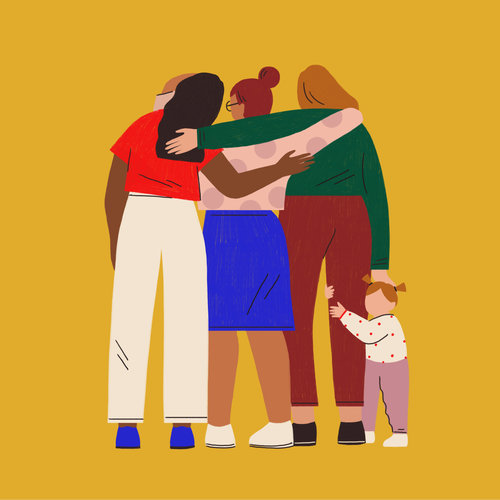
As the saying goes, money doesn’t buy happiness, but it does buy life satisfaction. According to a 2010 study, low income is associated with low emotional well-being and low life evaluation, while high income buys life satisfaction. However, the degree of satisfaction does not progress after an annual income of $75,000.¹ Knowing this, it would be wise to strive for increased income overtime to build savings accounts, emergency savings, and investments so bad life events are not exacerbated by financial instability. Additionally, a separate study found that how we spend our money is just as important as how much of it we have. Personal spending does not increase happiness whereas prosocial spending such as gifting, donating, or investing in others does. In this study, 16 employees were given a bonus and those who spent a bigger portion of it on others reported higher levels of general happiness proving the bonus amount was less important for happiness than how the money was spent.² If we do choose to spend on ourselves, money spent on experiences has more enduring satisfaction compared to buying material goods. In a 2015 study, researchers found this to be true and they also proved the anticipation leading up to an experience is more pleasurable than waiting to receive a material item. Experiences are both better remembered and have greater impact on life satisfaction.³
If you don’t have any plans for the weekend, have you considered volunteering? Research shows volunteering boosts happiness and well-being. In a study published in the Journal of Happiness Studies, 70,000 UK participants were surveyed about their volunteering habits, mental-health and everyday functioning. These surveys were conducted from 1996 to 2014 every two years and found that people who volunteered in the past year when surveyed reported better life satisfaction and overall health compared to those who didn’t volunteer. The research also shows those who volunteered at least once a month had better mental health than those who rarely or never volunteered. The question then arises, does volunteering make us happy or does happiness make us volunteer? Even when accounting for subjects’ initial levels of well-being, the same result remained; those who volunteered became happier overtime regardless of their initial state.⁴

This week, I want you to give back in at least two ways. Everyone’s financial situation is different, so don’t feel pressured to give money because you can always give your time! Below are some suggestions for ways to give back.

• Give a gift
• Donate items you no longer need
• Run errands for your parents
• Buy your friends or family a meal
• Sign petitions for a cause you believe in
• Donate to a charity, organization, GoFundMe, etc.
• Spend money on an experience for you and a friend
• Babysit so the parents have time for themselves
• Pickup groceries for an elderly neighbour
• Offer your skills (e.g. makeup, photography, tutoring, etc.)
• Clean up a room for someone else
• Make something and gift it
• Volunteer
Pat yourself on the back because you only have one week left! I hope however incremental, your well-being has improved and you continue to incorporate what works for you in your daily life. Next week, we’ll be tackling your ikigai, in other words, your purpose.